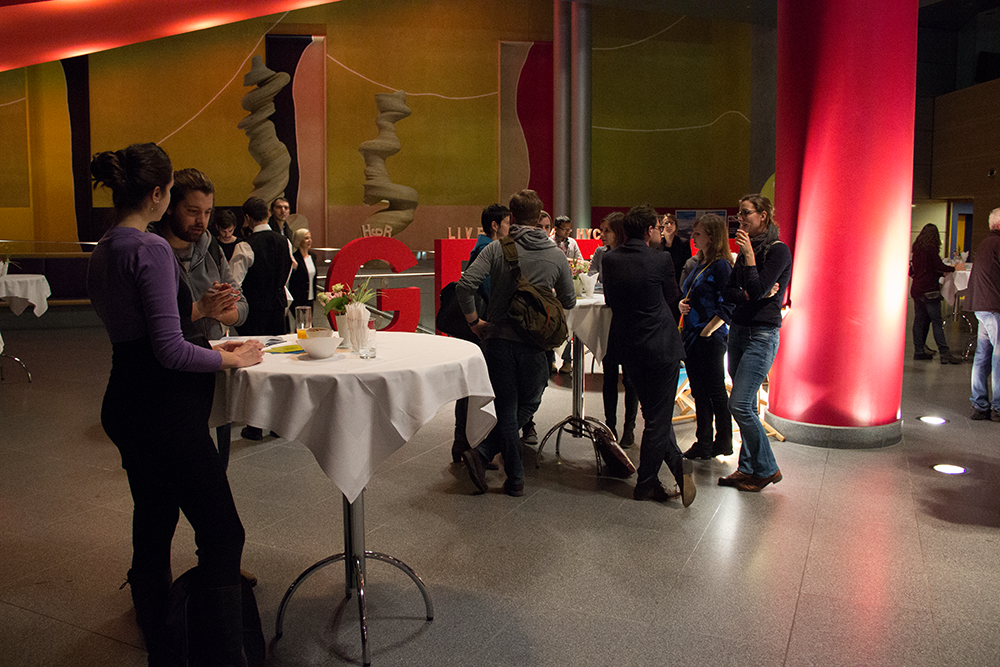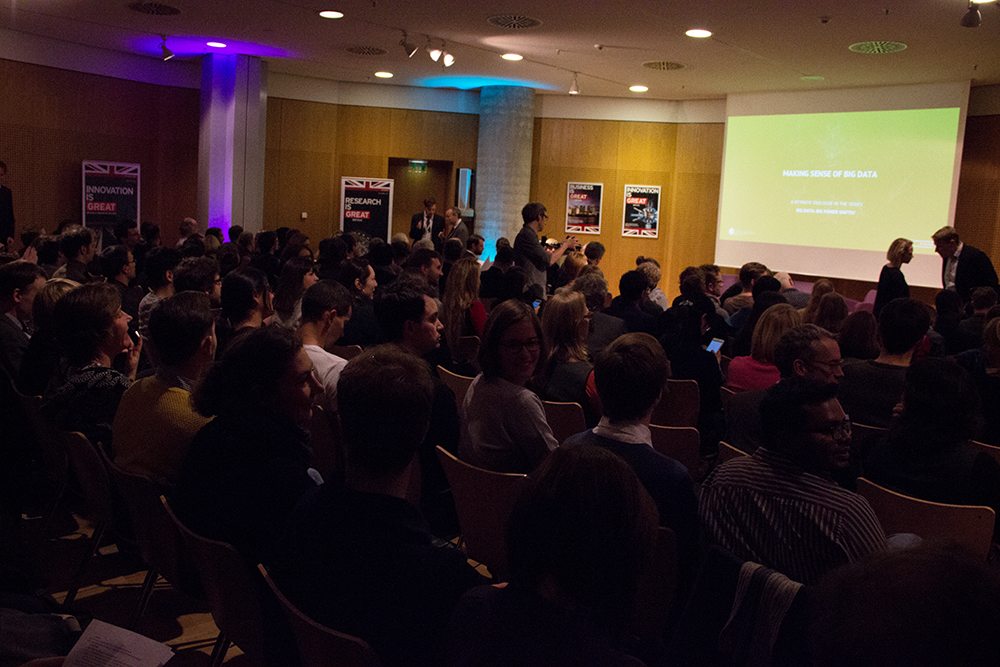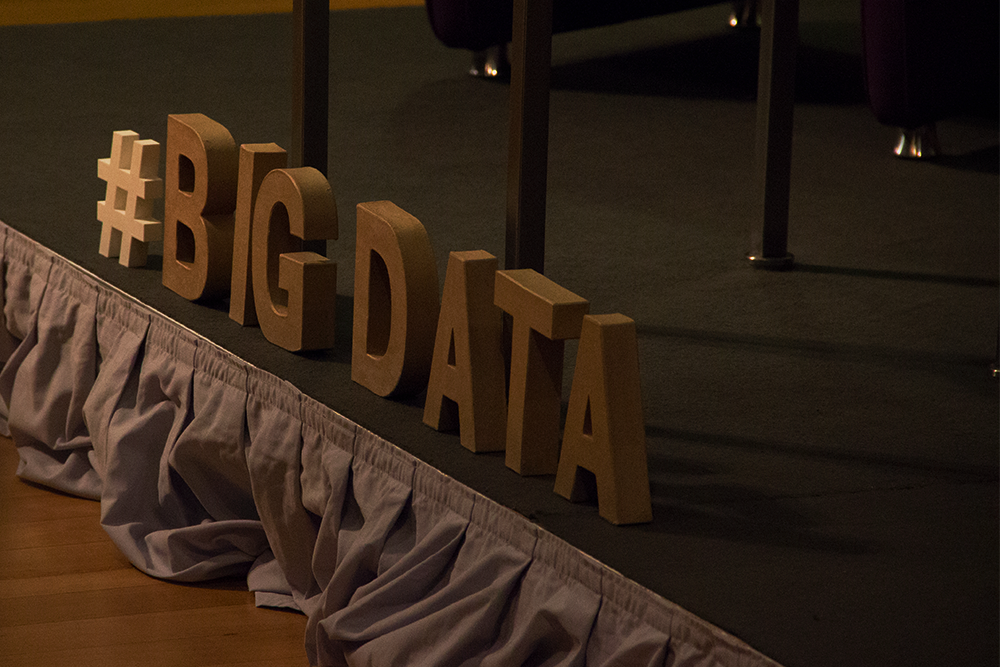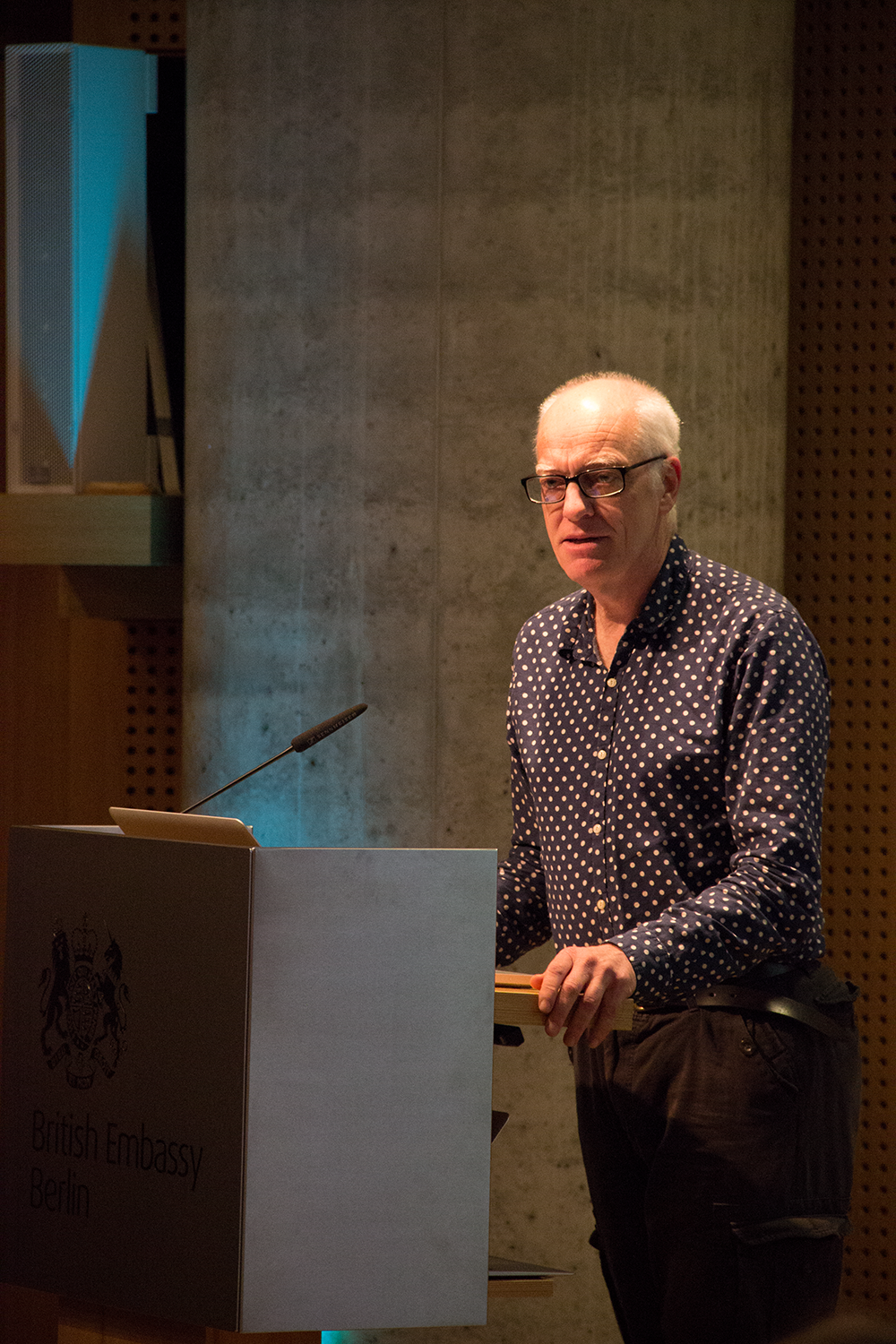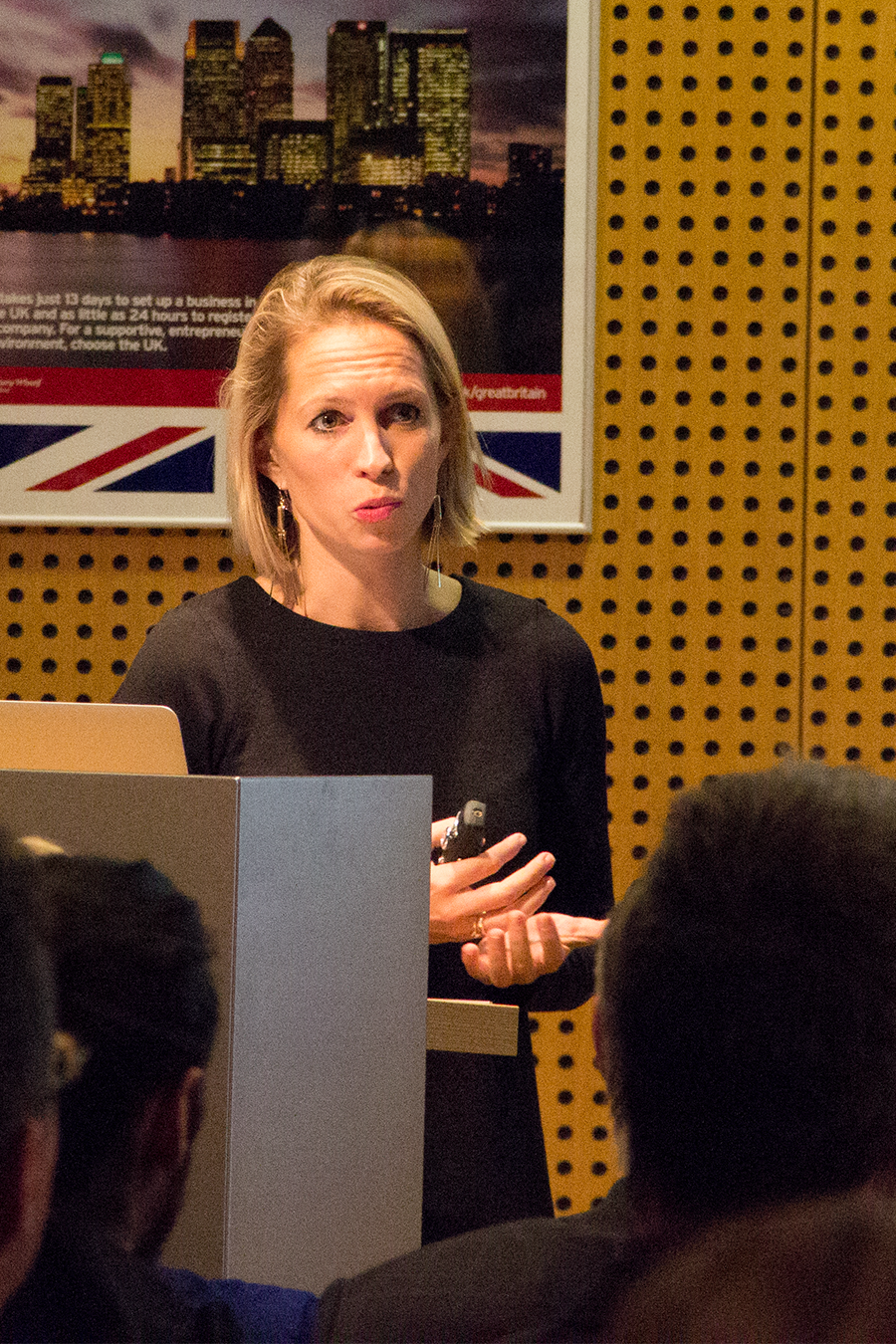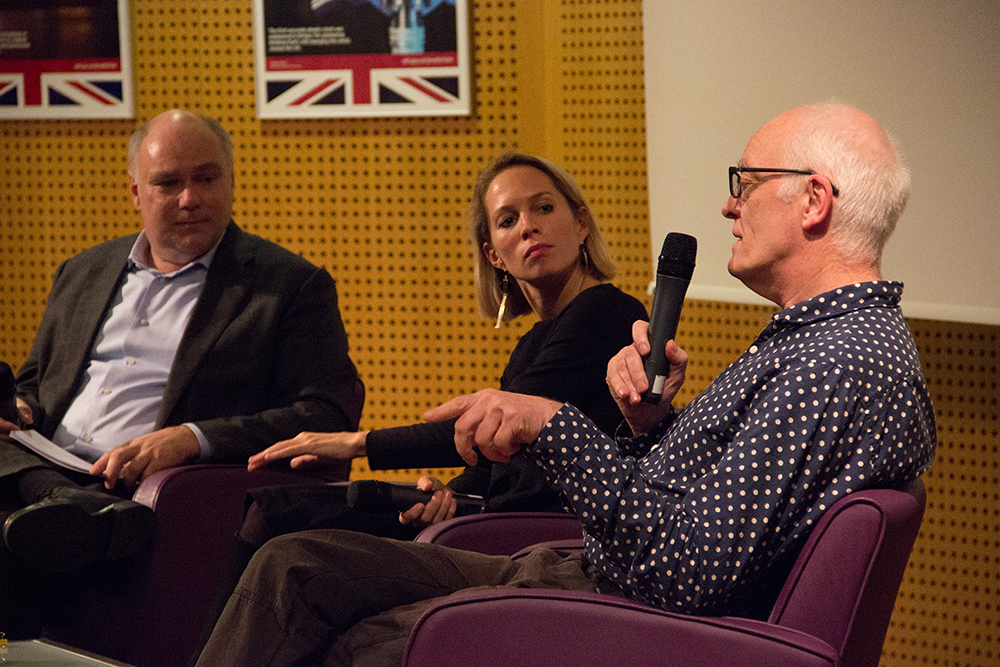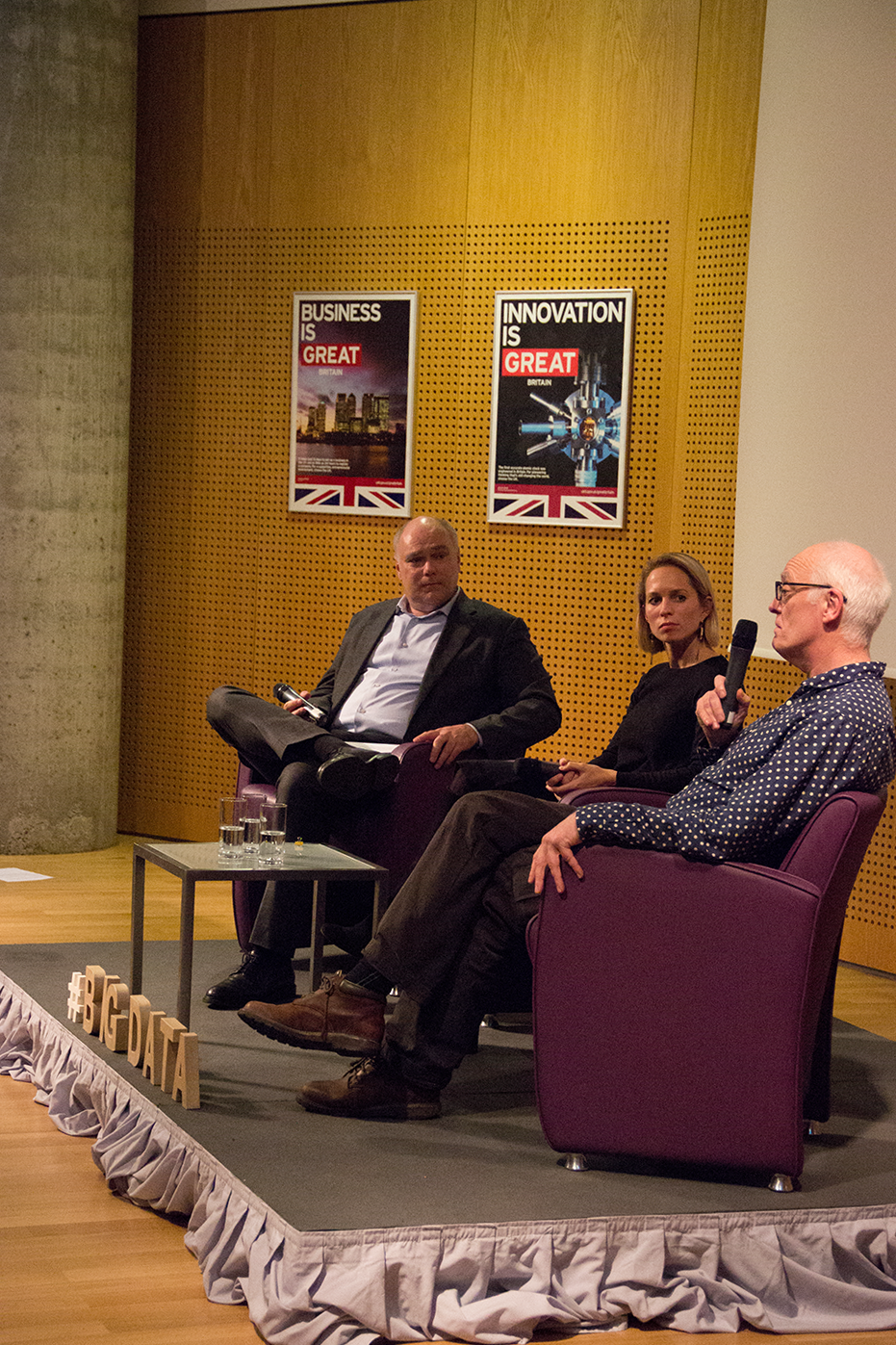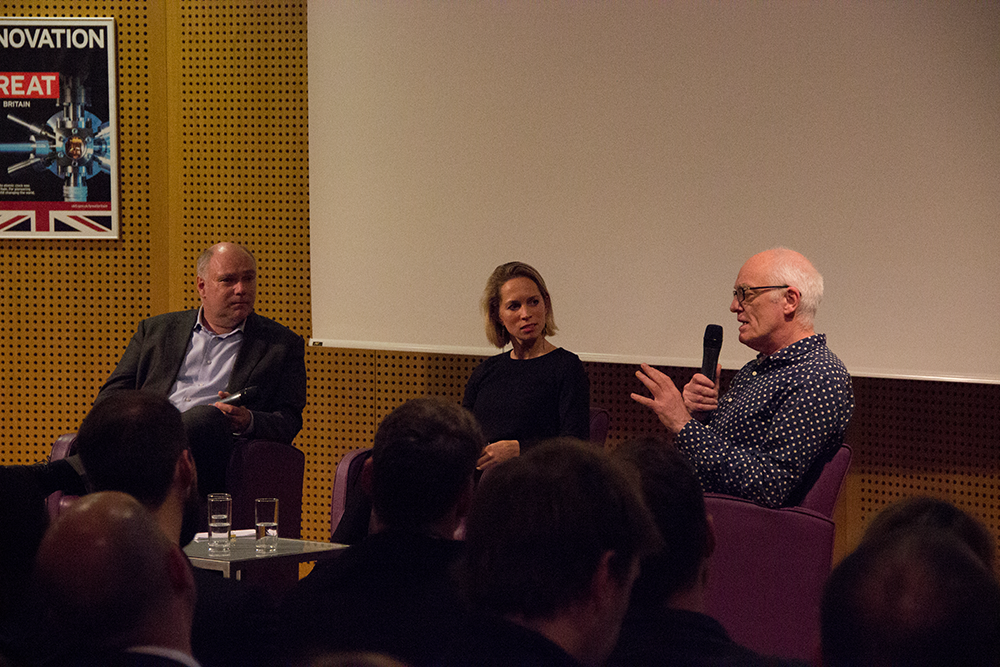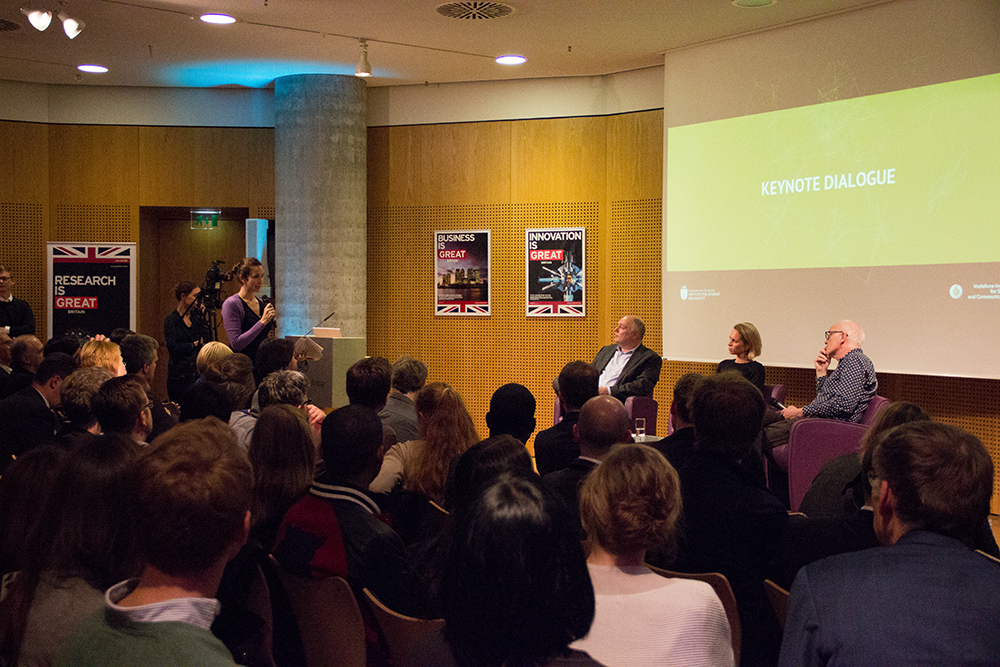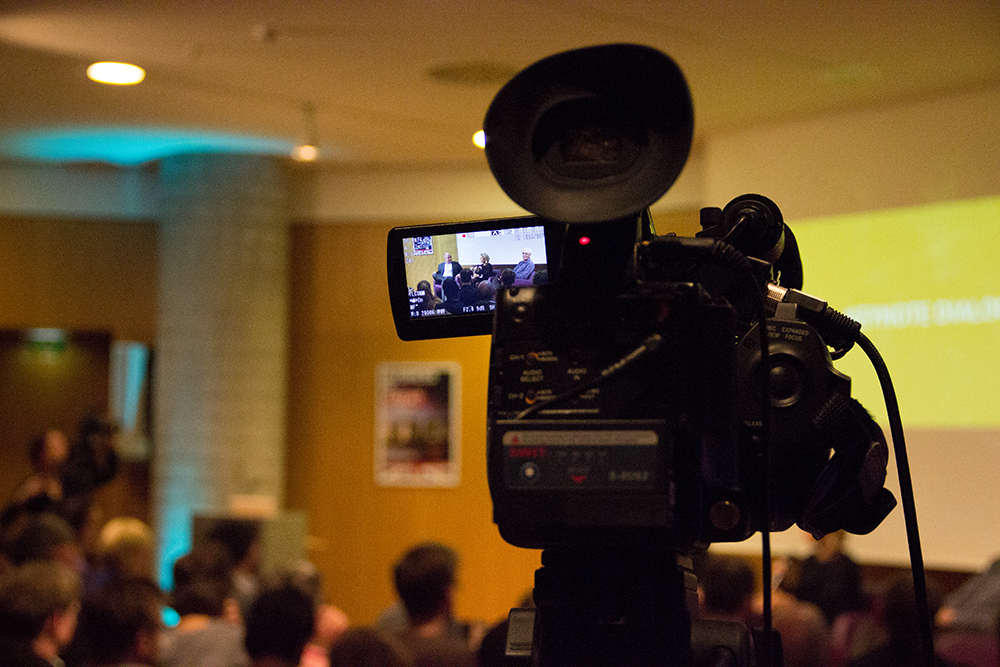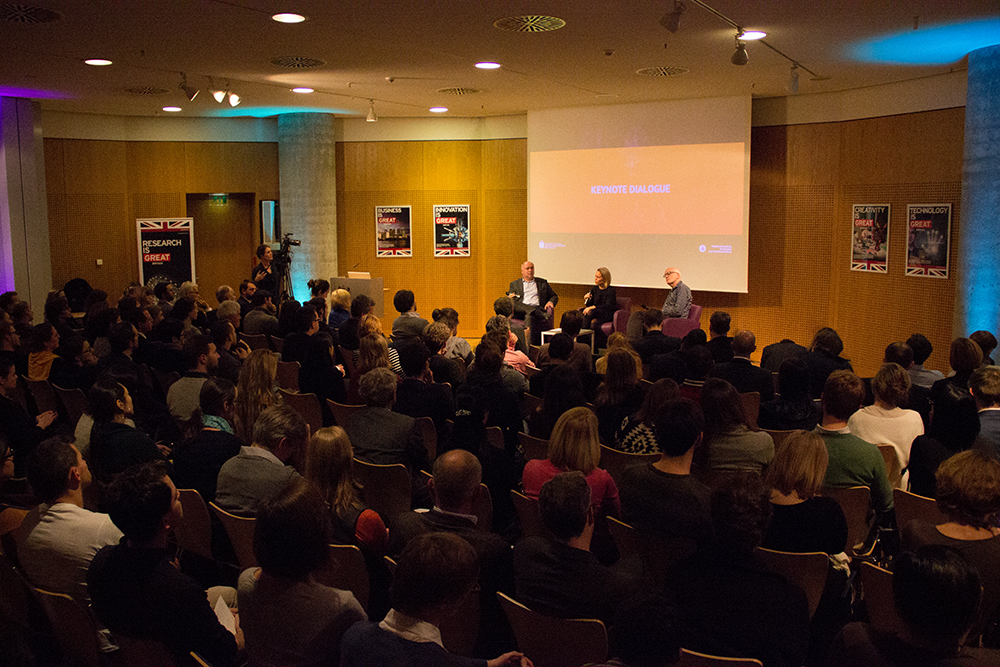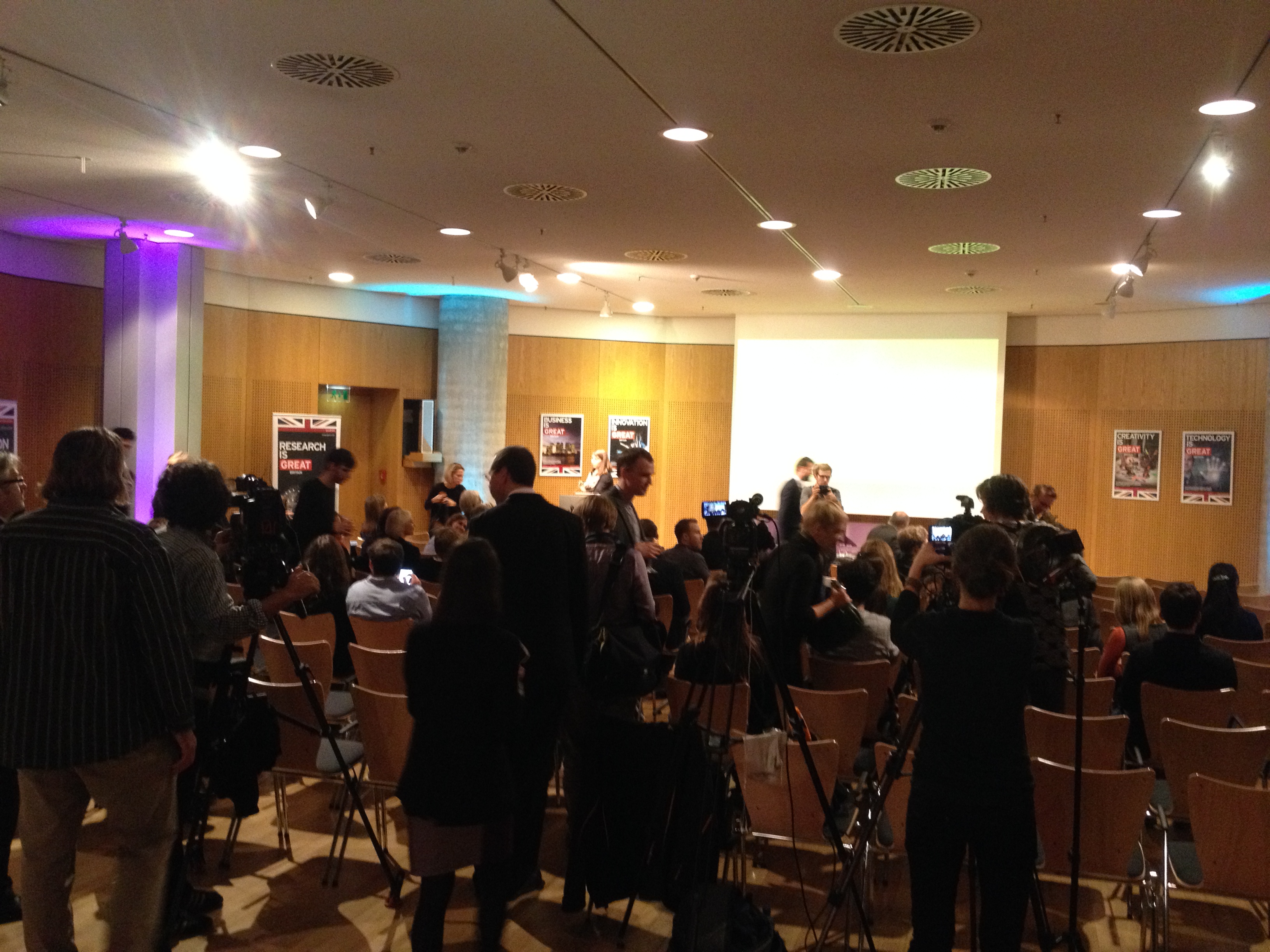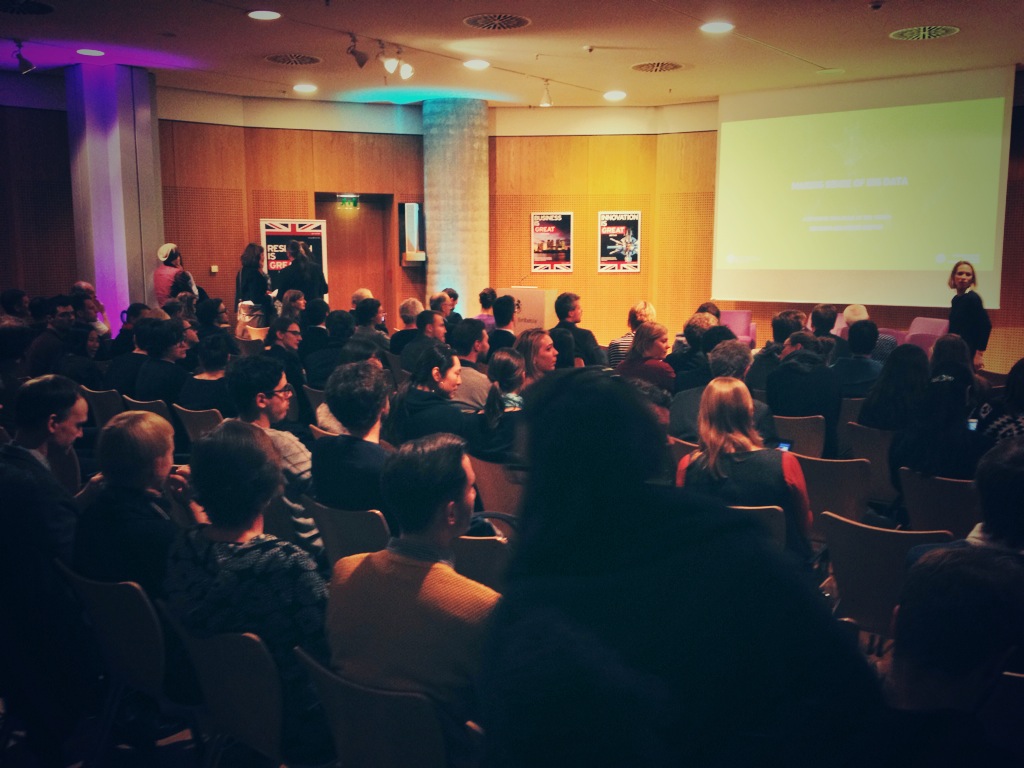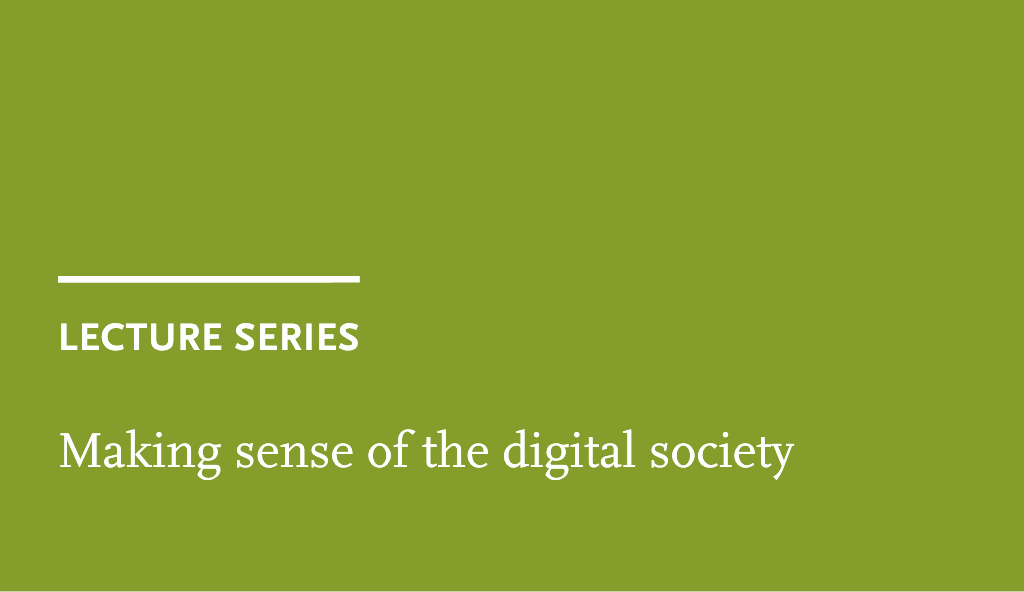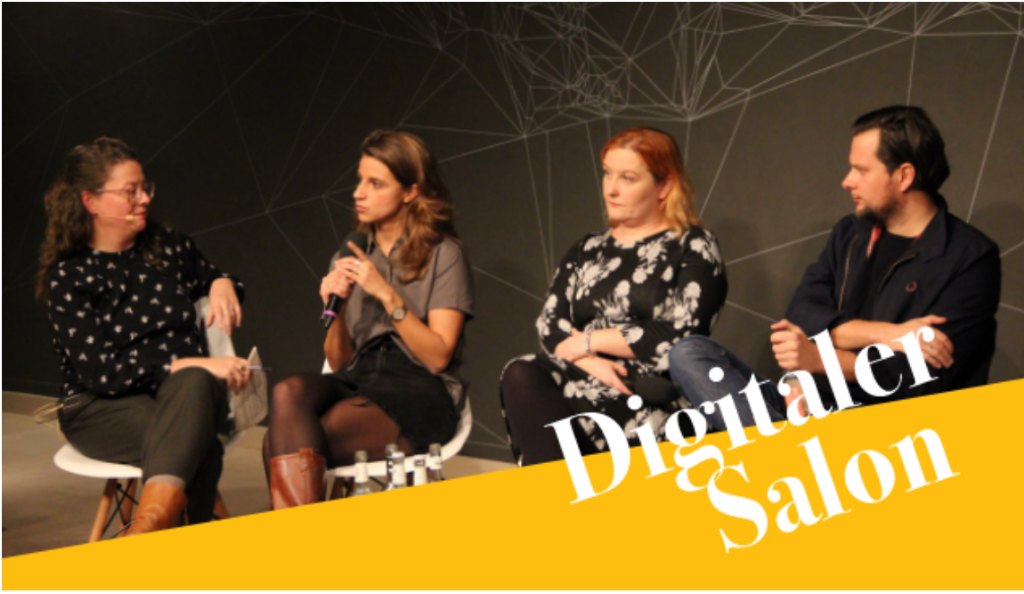Making Sense of Big Data
To watch the keynote speeches of the event, please go to our youtube channel here.

The keynote dialogue Making sense of big data is the first event in the series Big data: big power shifts?. The evening’s speakers, Professor Mike Savage from the London School of Economics and Isabelle Sonnenfeld, lead of Google’s News Lab in Germany, are both eminent experts in understanding the importance of digital media and big data for modern societies and their study.
The British Embassy Berlin in cooperation with the Alexander von Humboldt Institute for Internet and Society (HIIG) host this kick-off lecture for the series Big data: big power shifts?, that the Humboldt Institute for Internet and society conducts in cooperation with the Vodafone Institute for Society and Communications.
The dialogue will also serve as the opening keynote for an academic conference on Media Communication Between Complexity and Simplification. Theories, Methods, Practices organised by the German Communication Association (DGPuK).
Programme
| 18:00 – 19:00 | Registration For security reasons, we kindly ask you to bring along your ID/passport with your registration confirmation. Please plan suffficient time for security control at the embassy’s entrance. |
| 19:00 – 19:10 | Welcome Nick Leake, Councellor, Head of EU and Econ, British Embassy Berlin David Deißner, Director Strategy and Programmes, Vodafone Institute for Society and Communications |
| 19:10 – 19:30 | Mike Savage: The new politics of social science data In his talk Mike Savage argues that social scientists are pioneering a new kind of data based analysis which is attracting growing public interest. A number of innovative tools – visualisations, network analysis and ‘relational analysis’ – is reconfiguring the social scientific tool kit. Rather than see big data as a threat to the social sciences, therefore, there is enormous potential for cross fertilisation. The talk will be illustrated with his own experience with the BBC’s Great British Class Survey which is the most popular digital social scientific project ever conducted in the UK.Mike Savage is Martin White Professor of Sociology and Head of Department at the London School of Economics and Political Science. Before that, he was Professor of Sociology at the University of Manchester where he was Head of Department and founding Director of CRESC, the ESRC Centre for Research on Socio-Cultural Change. He moved to the University of York in 2010, where he was interim Head of Department, and where he continues as Visiting Professor. |
| 19:30 – 19:50 | Isabelle Sonnenfeld: Telling stories with data It’s hard to think of a more important source of information in the world than quality journalism. In order to ensure that innovation in news leads to a more informed, more democratic world Google created the News Lab as a new effort to empower innovation at the intersection of technology and media. It’s mission is to collaborate with journalists and entrepreneurs to help build the future of media. One way is by getting helpful Google data sets in the hands of journalists everywhere. Data has been used in journalism for decades so data journalism is nothing new. The only factor that has changed is technology – technology that enables journalists or academics to analyse, interpret and visualise big data faster and more accurate. Data can tell a very human story when put in context. Isabelle Sonnenfeld has joined the Google News Lab as acting News Lab Lead in Germany in October 2015. Before that, she worked for Twitter Germany, where she spent four years as the Head of News, Government & Politics. In her work at the Google News Lab, Isabelle Sonnenfeld focuses on providing support for editors in data journalism, promoting Google tools for journalists, and fostering cooperation with German media organizations. |
| 19:50 – 20:20 | Discussion between Mark Savage and Isabelle Sonnenfeld Moderated by Wolfgang Schulz, Director, Humboldt Institute for Internet and Society |
A keynote dialogue in the series Big data: big power shifts?
Big data has been a major issue in internet-related public debate for several years now and it is yet unclear what impact big data has on societies, politics and markets. Big data means the automatic generation of very large and diverse data sets which are mainly the result of the digitisation of modern societies, their processing by algorithms and their use for decision-making and regulation, in the private or public sector. This includes purposes such as profiling, monitoring, predictive analysis and risk calculation. Mayer-Schönberger & Cukier claim that big data is a “revolution that will transform how we live, work, and think”. But whereas revolutions imply a profound shift in power relations, there is little evidence and debate about whether and, if so, how big data affects power relations.
The lecture series will explore this topic with speakers from different backgrounds and be backed by a special issue of the Internet Policy Review.
The event series Big data: big power shifts? is initiated by the Alexander von Humboldt Institute for Internet and Society in cooperation with the Vodafone Institute for Society and Communications and curated by Dr. Lena Ulbricht, WZB Research Fellow.

Please note that the event is already booked solid. You can use the form below to register for our waiting list.
DIGITAL SOCIETY LECTURES
This high-profile lecture series thrives to develop a European perspective on the processes of transformation that our societies are currently undergoing.
DIGITALER SALON
Once a month we publicly discuss the impact of digitalisation on the society. Therefore we invite special guests and engage in a dialogue with the audience.
NEWSLETTER
Be the first to learn about our new events and exciting research results.
